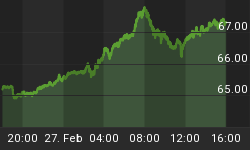Recently, there have been some calls in the City for companies to pay higher dividends. Under the old system of Advanced Corporation Tax ("ACT") this would have made a lot of sense, because the tax rate fell as pay-outs rose.
Under ACT, a company which distributed all its profits suffered an effective rate of tax of only 14%, compared with just over 30% for those which paid no dividends. When Gordon Brown abolished ACT, however, the tax rate rose to 30% for all companies.
Dividends are no longer tax efficient. They are often inefficient for tax paying investors. This is particularly true when markets have fallen a lot.
Companies can return cash to shareholders in one of two ways. They can pay dividends or they can use "buy-backs". When companies buy their own shares in the stock market there is no tax liability on the sellers, unless they have made a profit on their investments.
Companies might, of course, increase dividends and still buy-back as many shares as before. But this would either mean lower investment or higher borrowing. It is hard to believe that either of these would benefit investors.
Corporate investment in the UK is low by international standards. Fund managers are not to blame for this - the Chancellor is the number one villain, for increasing the effective rate of corporation tax and driving up the exchange rate.
Nonetheless, reducing the amount that companies invest even further will not help the stock market. In the short-term it is more likely to hurt. Lower investment must be matched by a fall in profits, unless some other offsetting change occurs elsewhere in the economy.
In the long run these offsets will happen, but they take time. Fund managers can hardly want profits to fall, even in the short-term.
Companies could still pay out higher dividends by increasing debt. But this doesn't look too smart at the moment either. Some companies are already going bankrupt because of too much debt; others are cutting back on employment and investment, while others are trying to raise new equity.
If companies shouldn't increase their debts, which seems the case today, then higher dividends will either mean less investment or more equity issues.
More equity issues would mean recycling money from one lot of companies to another in a tax and cost inefficient way. The beneficiaries would the Chancellor and the investment banks. Both of them badly need help, but fund managers shouldn't advocate such aid at the expense of investors.















